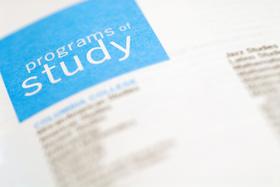How To Craft the Perfect College Admissions Essay
Every year, colleges receive thousands of applications from qualified students.
- Each school has its own criteria for admission, but test scores and your high school GPA will only get you so far.
- In addition to these metrics, colleges and universities use various other things to narrow down their list of applications.
- The college admissions essay is one of them.
When filling out college applications, you have the opportunity to highlight your accomplishments and relevant experiences.
- However, those things don’t necessarily paint an accurate picture of who you are.
- That’s where the admissions essay comes in.
- This is your chance to tell your story.
- This will give the admissions committee a clearer idea of what makes you unique.
- It will show why you would be a good fit for their school.
Writing a college admissions essay can be a nerve-wracking experience because there is so much riding on it. Keep reading to receive an in-depth guide to crafting the perfect college admissions essay.
General Guidelines for Admissions Essays
Before we get into the nitty-gritty details of crafting an unforgettable essay, let’s highlight some simple tips to keep in mind as you write:
- Keep it concise. Even if the application doesn’t specify a word limit, most admissions counselors will start to get bored around the 500-word mark. Definitely meet the minimum word requirement, but don’t write a novel.
- Be yourself. It may seem like the point of an admissions essay is to impress the people who will be reading it, but the real goal is to help them get a picture of who you are. Be honest about your accomplishments, and don’t be afraid to be a little vulnerable.
- Dig a little deeper. Many college applications have a prompt asking you to reflect on an important experience in your life, but they don’t just want a retelling. As you write, make sure to reflect on the experience and talk about how it affected you and what you learned.
- Don’t be repetitive. Most applications have sections where you can write about your extra-curricular activities and other formative experiences, so don’t repeat yourself by writing about these things in your essay.
- Don't use AI to write your essay. An admissions essay must always be your own original work.
- Answer the question. Don’t make the mistake of reusing and recycling essay questions for all of your applications. It is important that you answer the question being asked and tailor your response for each college you’re applying to.
- Be careful how you use humor. Do so lightly. If you can make a college admissions counselor laugh, it will make your profile more memorable. However, humor can backfire and push your application to the bottom of the stack of applications. So, be careful.
Do These Things Before You Start Writing
While there is something to say about jumping in with both feet, your college application essay carries a lot of weight.
- Therefore, it is worth taking time to think before you write.
- The first thing you need to do is to analyze the prompt thoroughly.
- Understand what the question is really asking.
Read the prompt several times.
- If necessary, break it down into small phrases and look at each phrase individually.
- Next, ask yourself what the admissions officers are asking with this question.
- What do they really want to know about you?
- Ask yourself how this information is relevant to your ability to succeed in college or to fit in with this specific college.
Next, put the prompt down and walk away.
- Take the time to really ruminate on the question and to think through your answer before you begin writing.
- Jot down some ideas or make a few notes to yourself.
- Take some time away before you return and reread the prompt.
- You may get something different out of it the next time you read it.
In this video, a student explains how his admissions essay got him admitted to Princeton University.
What kind of questions are you likely to see in a college admissions essay prompt?
Many colleges use the Common Application, so you’re likely to see the same prompts when applying to different schools.
Here are some of the prompts used on the 2018 Common Application:
- Share your story in relation to a background, identity, interest, or talent that is meaningful to you and without which this application would be incomplete.
- Talk about a time when you faced a challenge, setback, or failure – how did it affect you, and what did you learn from the experience?
- Write about a time you questioned or challenged a belief or idea – what prompted your thinking, and what was the outcome?
- Describe a time you solved a problem or talk about a problem you’d like to solve – explain the significance and what steps you took or could take to solve it.
- Talk about an accomplishment, event, or realization that triggered a period of personal growth and a new understanding of yourself and others.
- Write about an idea, concept, or topic that you find incredibly engaging – why does it captivate you and what do you do when you want to learn more?
If you have the option to choose from multiple prompts, think about each one and what you might write.
- Then, narrow your options and choose the prompt that best highlights your skills and your personality.
- If you can’t decide, jot down some notes and start to flesh out your ideas.
- While you do that, the stronger option should become apparent.
Once you’ve chosen a prompt and you’ve started to think about your answer, take the time to get organized.
- Write down any key points or pieces of information you definitely want to include.
- This will prevent you from getting sidetracked and ending up rambling.
Create a rough outline of your essay.
- This will help you get a feel for the flow of the piece.
- It’ll help you stay within the word limit.
- You can also create a schedule for when you are going to write each section. This is helpful if you are a slow writer.
Finally, think about the college to which you are applying.
- Review the school’s mission statement.
- Look back at any other short answer prompts from the application that might give you a clue as to what kind of student the school is really looking for.
- Do not falsely represent yourself.
- However, take every opportunity you get to show the admissions council that you will be a good fit for the school.
Things to Keep in Mind While Writing
You’ve already taken the time to thoroughly think through the prompt and your answer. Plus, you’ve already received some general tips for writing a college admissions essay, so now what? Now you have to actually sit down and write it.
By the time you apply for college, you’ve written your fair share of essays, so it won’t do you any good to walk you through the five-paragraph essay format or to talk about the different methods for citations. To help you learn how to craft the perfect college admissions essay, let’s take a look at some of the things the most successful application essays have in common:
- They have a sense of purpose. A well-crafted admissions essay doesn’t just answer a question – it serves a purpose. That purpose is to give the admissions council a glimpse into who you are as a person and who you want to become through attaining a college education.
- They are the product of careful planning. A successful essay is planned out instead of scribbled quickly without forethought. It is very easy for an admissions counselor to tell the difference between an essay that has gone through multiple drafts with revisions and one that has not. The amount of effort you put into the essay will be evident and that is just as important as what you actually say in the essay.
- They tell a story. College admissions counselors like essays that show rather than tell. If you’re going to make a statement, back it up with an example. Don’t resort to clichés and don’t try to use formal or business-like language. You’re telling a story about yourself, your life, and your experiences.
- They draw the reader in from the start. The first sentence of the essay should capture the reader’s interest. Think of it as a cliffhanger in a movie or book – it should leave the reader wanting more. You only have 500 words or so to make an impression, so every sentence counts.
- They show the applicant’s personality. The very first sentence of your essay should capture the reader’s attention and the rest of the essay should keep it. One way to do that is to let your personality shine through your writing – by the end of the essay, the reader should feel like they know more about you than they did at the beginning.
- They are free from errors. Nothing is more distracting than a glaring grammatical error smack dab in the middle of an otherwise impressive essay. Read through your essay again and again – and then do it again. Have as many people read it as you can just to make sure it is completely clean and error-free.
While you’re writing, remember that the goal of your essay is to draw a picture of yourself effectively. You want to stand out in some way, and sometimes controversy is a good way to do that.
- What about you would surprise someone who doesn’t know you?
- Think about any counterintuitive parts of your life, your experiences, or your personality that could become fodder for your essay.
- For example, are you the varsity quarterback, but you spend your evenings reading poetry?
- Maybe you’re a young woman who builds computers from parts in her spare time.
- Perhaps you have a physical disability but you find a way to participate in sports.
- Whatever makes you who you are, that’s what you write about in your essay.
Once you’ve decided what you’re going to focus on in your essay, really go for it! There is no sense in holding back and being humble.
- You want to shine in the eyes of the admissions council.
- Your application essay is the best place to do that.
- You shouldn’t lie or embellish the truth, but don’t be afraid to brag about your accomplishments.
- College admissions officers want to see applicants who are confident in their opinions and in themselves because they make the strongest students.
This video explains how to write the perfect admissions essay.
Make a Final Check Before Submitting
Now that you’ve finished the essay, the hard part is over, right? Not necessarily!
- What you’ve just written is the first draft.
- You’ll want to revise and edit that draft at least once.
- You might even want to rewrite it entirely.
- Read your essay aloud so you can view it a little more objectively.
- You might even want to have your parents or a friend read it for you as well.
After reading back through your first draft and making notes, go back in and really work on the essay.
- Cut out fluff language and unnecessary details that distract from your point to keep the essay as concise and focused as possible.
- Reread the prompt and ask yourself whether your essay answers the question being asked.
- If there’s room for improvement, make the necessary changes, then review it again.
- This process could take a while, so be sure you start writing early enough that you have time to make edits.
- When you’re convinced that your essay is perfect, give it a final read-through and then have at least one other person check it for grammatical errors.
- The spell-check function on your computer will catch most things, but it may not be able to differentiate between things like: “After I graduate form high school, I plan to travel for the summer.”
Having someone else look over the essay with objective eyes will help you make sure that it is free from errors and ready to submit.
- By this time, you’ve already read it dozens of times so your eyes may not catch the simple errors because you know what it should say.
- When you’re satisfied that it can’t get any better, you can say that your college admissions essay is complete.
Some Dos and Don’ts for College Application Essays
By now, you should have a pretty good idea of what you should and should not do when writing your college application essay, but we’re going to review the basics one more time just to be sure. Here are some simple dos and don’ts to keep in mind as you plan, write, and review:
- Don’t think of it as another school assignment. You’re not trying to prove a point, you’re trying to showcase yourself and convince the admissions council to admit you.
- Don’t act like you know it all. Even if you had a high GPA and perfect test scores, you’re still a high school student and you have a lot to learn.
- Don’t pretend you have it all figured out. You may have some idea what you want to do with your life, but part of going to college is figuring out who you are and what you want.
- Don’t try to be someone you’re not. The best thing you can do is create an accurate portrayal of yourself, shortcomings and all.
- Don’t lie or embellish the truth. Nothing in your essay should contradict what’s in the rest of your application.
- Do think about the prompt and your answer before you write. You should have a clear direction in mind about what you want to say.
- Do highlight your achievements and feel free to brag a little! You’ve worked hard to get where you are, so don’t be afraid to show it.
- Do show that you are an individual by talking about your personal beliefs and convictions as well as what led you to form them.
- Do answer the question being asked without rambling too much – if there is a word limit, stick to it.
- Do have fun with it. The idea of having fun writing an essay may seem foreign to you, but this is your chance to really let loose and write about yourself so go for it!
Conclusion
While it may seem like the essay is just another part of a college application, it is a very important part. The more selective a college is, the more qualified the applicants will be, which means that you have to rely on something other than your grades and test scores to stand out. A perfectly crafted essay is the perfect way to highlight your strengths and your accomplishments while also proving to the admissions council that you deserve to be admitted.
Spending days or weeks crafting the perfect application essay may not sound like fun, but it is an essential part of the application process. Moreover, a lot is riding on it. Take your time and put to use the tips provided in this article to write the best college admissions essay you possibly can.
Questions? Contact us on Facebook, Instagram, and YouTube. @communitycollegereview
#communitycollege #collegeadmissionsessay
















